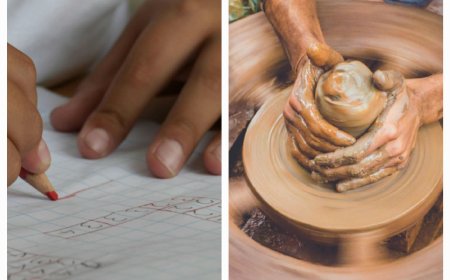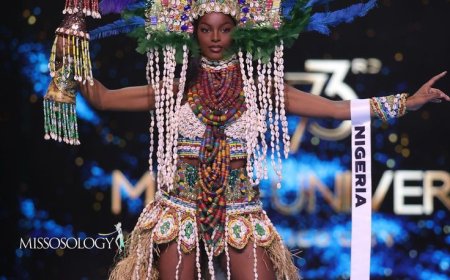The lasting imprint of religion on Cultural traditions
This article explore the role of religion and its impact on cultural traditions. We shall take a look at diverse ways religion has impacted cultural traditions.
The most interesting aspect of religion, culture, and tradition is how they intersect with one another. Many people find it challenging to comprehend this concept and how one influences the other.
In this article, our focus will be on the role of religion in shaping cultural traditions. Let’s ask ourselves: Does religion shape cultural traditions? If so, what is the role of religion in shaping cultural traditions? Before we answer these thought-provoking questions, let’s examine the key concepts of religion, culture and traditions.
Religion
Defining religion is quite dicey, as scholars of religious studies like Wilfred Cantwell Smith (in his book The Idea of Religion,1962) and Raymond F. Glover (1979) can attest. The concept of religion is defined differently by scholars depending on their discipline thus, resulting in multiple definitions. According to sociologist, Emile Durkheim, religion is “a unified system of beliefs and practices relative to sacred things – that is, things set apart or forbidden.” Anthropologist Clifford Geertz defines religion as “a system of symbols which acts to establish powerful, pervasive, and long-lasting moods and motivations in men.” Geertz views religion as something triggered by various symbols, noting that humans are symbol-making beings because we ascribe meaning to things, making them symbols.
Culture and Traditions
If you ask a young child what culture is, the first thing that comes to their mind is that “culture is defined as the way of life.” Yes, this is a simple definition of culture that encompasses everything about human life. However, scholars have also defined culture, and one particular definition that stands out is E.B. Tylor’s definition in his book Primitive Culture (1871). He defines culture as “that complex whole which includes knowledge, beliefs, art, laws, morals, customs, and every other capability and habit acquired by man as a member of society.” Culture is what we do, how we do it, how we eat, think, dress and so much more. Culture is something we learn, and share, and is maladaptive. Culture is man’s unique way of exploiting nature.
Traditions are embedded in culture; they are simply our practices, such as rituals, myths, beliefs, etc. They are a part of us that is shared from one generation to the next. They are sacrosanct, not meant to be disposed of by newer generations, and because of this, we have codes of conduct or rules guiding them. Now, let’s address the questions we’ve been eager to explore; let’s examine the first aspect of the question.
Does religion shape cultural traditions? From our earlier discussion, the answer is a resounding “yes.” Now, how does religion shape our cultural traditions? Religion has a profound impact on our cultural traditions, influencing our beliefs, norms, values, worldviews, ethics, and moral codes. This is evident in how religion shapes our values and beliefs, rituals and practices, and cultural heritage.
Shaping Values and Beliefs
Religion provides moral guidelines, such as the Ten Commandments, which guide our behaviour and decision-making. It shapes our attitude towards life and encourages self-growth. Just like the Ten Commandments are used as guiding principles for Christians so are the Ten Pillars of Islam to the Muslims. They abide strictly by these rules as they believe that failure to do so could result in insurmountable consequences. For instance, one of the Ten Commandments says “Thou shall not steal” invariably means that anyone who steals will be punished by the divine being. This creates a form of consciousness in the people to do the right thing to avoid being punished.
Influencing Rituals and Practices plus Symbols
Religion influences our rituals and practices, including ceremonies like weddings and funerals, festivals like Christmas and Eid al-Fitr, and the use of religious symbols like the cross, Tesbiu, and the Bible. These symbols are ascribed meaning by humans, as Leslie White noted, “Only man knows the difference between water and holy water.” For instance, consider a Catholic who passes by a carpenter’s shop where a cross is placed amongst the furniture. They may not give it a second thought. However, if that same cross is taken to the church, it becomes a revered symbol, illustrating how meaning is assigned to objects based on context and religious significance. This phenomenon is observed being passed down from one generation to the next, highlighting the power of religion in shaping our beliefs and practices.
Promoting Cultural Heritage
Religion plays a vital role in promoting cultural heritage by preserving and transmitting norms, traditions, and values from one generation to the next. This is achieved through various means, such as storytelling, educating the people and promoting a sense of belonging amongst people in the community. It also serves as a coping mechanism during difficult times. Whether faced with personal struggles, tragedies, or uncertainties, religion offers a sense of hope, comfort, and resilience that helps individuals navigate life’s challenges. That is why young Sade, despite all the hardships she faces, still believes in better days ahead, thanks to the sermons of hope she has listened to and received from her religious leaders.
Cultural Traditions in Art and Literature
A very significant role of religion in shaping cultural traditions can be seen in the way we display our arts and Literature. We have different artworks that depict our culture and traditions and talk about the various potteries with different motifs depicting different cultural histories. Examples of these potteries are the Benin Bronze objects, Igbo Ukwu pot, Nok terracotta amongst many others. In terms of Literature, we have Nobel Prize winners like Wole Soyinka, Chimamanda Adichie and so many others who write beautiful fiction and nonfiction that help us trace back the origin and history of our culture.
Religion’s impact on cultural traditions is profound and cannot be underestimated. It profoundly shapes various aspects of human life, beliefs, and practices, fostering good community relationships and a sense of belonging among people. Moreover, it helps us understand the intricacies and complexities of life, which cannot be sidelined or ignored. Additionally, it helps in promoting our cultural heritage by preserving it for generations to come.
What's Your Reaction?






































































































